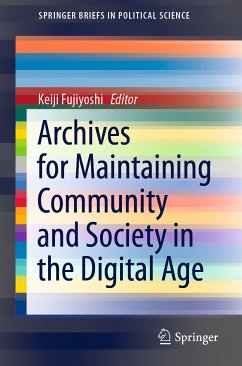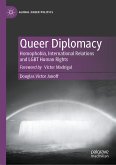This book explores how a society accepts and utilizes a system of archives to improve the quality of people's lives at each level of community, organization, and government. This is the first book that examines the political, economic, and social background that has prevented the development of archival systems in Japan in comparison with other societies of different cultures such as the United States, Romania, India, and Korea. An archival system is an indispensable tool to live in the present and create a future by sharing an understanding of the past. For that reason, this book considers what "respecting the past" means from the point of view that people experience in their workplace to reconcile tragic experiences such as conflict, injustice, or corruption. Then the book shows how a system of archives plays a significant role in a democratic society because it serves as a foundation of evidence-based decision making for a specific group or the public. Thus, this volume provides guidance for ways that a society can build a common understanding of the importance of sharing the past to maintain community and society.
Dieser Download kann aus rechtlichen Gründen nur mit Rechnungsadresse in A, B, BG, CY, CZ, D, DK, EW, E, FIN, F, GR, HR, H, IRL, I, LT, L, LR, M, NL, PL, P, R, S, SLO, SK ausgeliefert werden.









